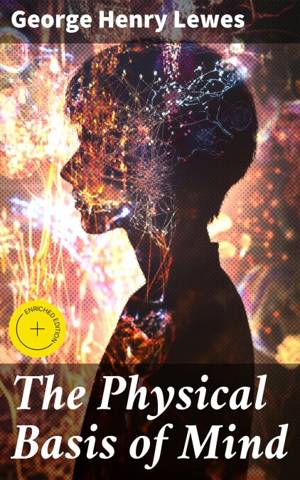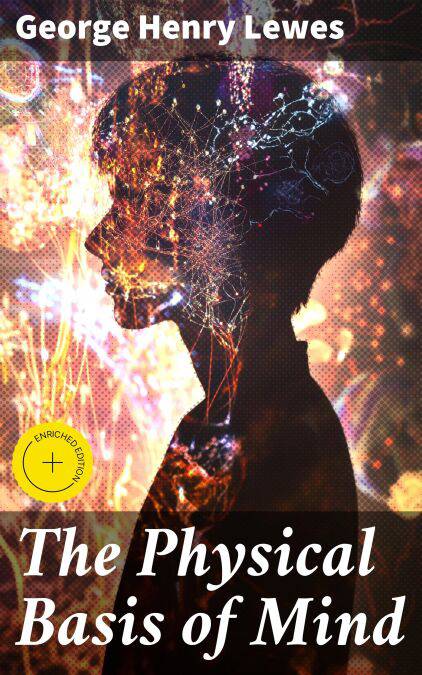
- Retrait gratuit dans votre magasin Club
- 7.000.000 titres dans notre catalogue
- Payer en toute sécurité
- Toujours un magasin près de chez vous
- Retrait gratuit dans votre magasin Club
- 7.000.0000 titres dans notre catalogue
- Payer en toute sécurité
- Toujours un magasin près de chez vous
The Physical Basis of Mind EBOOK
Enriched edition. Being the Second Series of Problems of Life and Mind
George Henry Lewes
Ebook | Anglais
1,99 €
+ 1 points
Format
Description
In 'The Physical Basis of Mind,' George Henry Lewes embarks on a meticulous exploration of the intricate relationship between the mind and the body, positing that mental phenomena emerge from physical processes. Lewes utilizes a scientific lens, drawing on contemporary advances in physiology and psychology, and integrates a philosophical discourse that reflects the spirit of 19th-century empiricism. The text is rich in rigorous argumentation, combining empirical observation with theoretical inquiry, and serves as a remarkable precursor to the developmental fields of psychology and neuroscience. George Henry Lewes, a prominent philosopher and critic of the Victorian era, was significantly influenced by the scientific milieu of his time, advocating for a materialistic understanding of mental processes. His diverse intellectual pursuits, ranging from literary criticism to philosophy and science, provided him with a unique perspective on the interplay of psychological theories and physical realities. Lewes's significant contributions to the field of psychology and his close association with notable contemporaries, including George Eliot, further enriched his views on the connection between the physical and the mental. This thought-provoking work is recommended for readers interested in psychology, philosophy, and the historical evolution of mind-body discourse. Lewes's nuanced examination invites contemporary scholars and laypersons alike to reconsider the foundations of consciousness, making it an essential read for anyone intrigued by the dialogue between science and philosophy.
In this enriched edition, we have carefully created added value for your reading experience:
- A succinct Introduction situates the work's timeless appeal and themes.
- The Synopsis outlines the central plot, highlighting key developments without spoiling critical twists.
- A detailed Historical Context immerses you in the era's events and influences that shaped the writing.
- A thorough Analysis dissects symbols, motifs, and character arcs to unearth underlying meanings.
- Reflection questions prompt you to engage personally with the work's messages, connecting them to modern life.
- Hand‐picked Memorable Quotes shine a spotlight on moments of literary brilliance.
- Interactive footnotes clarify unusual references, historical allusions, and archaic phrases for an effortless, more informed read.
In this enriched edition, we have carefully created added value for your reading experience:
- A succinct Introduction situates the work's timeless appeal and themes.
- The Synopsis outlines the central plot, highlighting key developments without spoiling critical twists.
- A detailed Historical Context immerses you in the era's events and influences that shaped the writing.
- A thorough Analysis dissects symbols, motifs, and character arcs to unearth underlying meanings.
- Reflection questions prompt you to engage personally with the work's messages, connecting them to modern life.
- Hand‐picked Memorable Quotes shine a spotlight on moments of literary brilliance.
- Interactive footnotes clarify unusual references, historical allusions, and archaic phrases for an effortless, more informed read.
Spécifications
Parties prenantes
- Auteur(s) :
- Editeur:
Contenu
- Nombre de pages :
- 2374
- Langue:
- Anglais
Caractéristiques
- EAN:
- 4057664093196
- Date de parution :
- 18-11-19
- Format:
- Ebook
- Protection digitale:
- Digital watermarking
- Format numérique:
- ePub

Les avis
Nous publions uniquement les avis qui respectent les conditions requises. Consultez nos conditions pour les avis.






